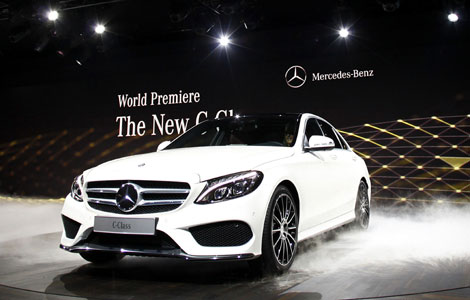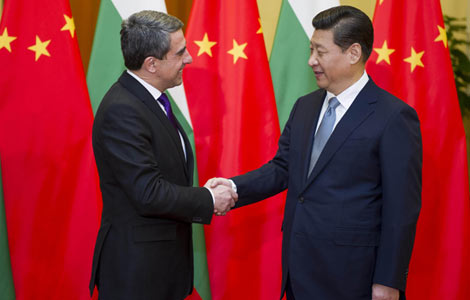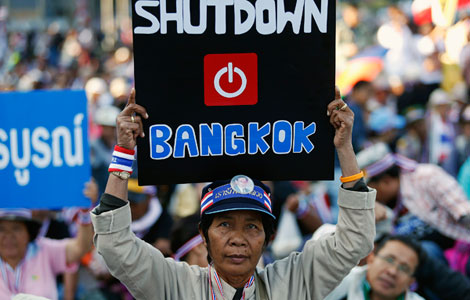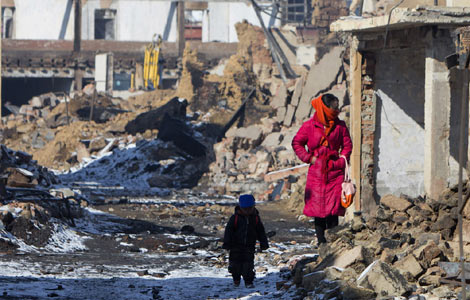Exchange rates, not inflation, push up Beijing's costs
Updated: 2013-12-09 11:02
By Michael Barris (China Daily USA)
|
||||||||

It was a surprising headline: "Beijing now second-most expensive location in Asia for expats."
That was how management-consulting firm ECA International summed up its latest cost-of-living survey for Asia. In fifth place last year, China's capital now trails only Tokyo for the most expensive location in Asia for expatriate workers, ahead of Nagoya, Shanghai, Yokohama, Seoul, Osaka and Hong Kong.
Globally, Beijing is the 15th most expensive city for expats, according to the survey released last week. Shanghai is 18, Hong Kong 28. Caracas was the world's most expensive expat city, up from seventh last year. Following it were Angola (fourth a year ago), Oslo (third), and Stavanger, Norway (eighth). The borough of Manhattan placed 33rd (37th), while metropolitan New York was 50th (unchanged).
But don't let the numbers fool you. While Beijing prices certainly are as high as or higher than in other parts of the country and Asia, currency fluctuations, not inflation, drove most of the change in ECA's latest expat cost-of-living report, according to Lee Quane, ECA International's regional director for Asia.
"Although the Chinese government has allowed the renminbi to appreciate steadily against the US dollar and food and oil prices in China have been rising, Beijing's jump in the ranking is largely due to Japanese locations becoming so much cheaper because of the weaker yen," Quane wrote in a statement included with the report.
While Tokyo continued to top the list of the most expensive expat locations in Asia, globally it fell to 10th place on the back of the weaker yen. That drop is significant, considering that the city was the world's most expensive for expatriates just a year ago. Companies that need to assign staff to Japan can now do so for "considerably less than in recent years", according to the report.
Nevertheless, Quane said, recent living-cost increases in China have made it more expensive for companies to set up operations there, compared with some other nations. Surveys carried out annually in March and September using a basket of day-to-day goods and services - upon which the ECA survey's rankings are based - show how Beijing prices compare with those in other cities.
Using the US dollar as the cost measure, the report found that a canned soft drink cost $1.20 in Beijing, but 83 cents in Shanghai, $1.21 in Hong Kong, and $1.58 in Tokyo. A dozen eggs could be purchased for $4.97 in Beijing, $5.20 in Shanghai, $6.48 in Hong Kong, and $5.30 in Tokyo. The tab for a beer at a bar was $9.28 in Beijing, $10.34 in Shanghai, $9.18 in Hong Kong, and $9.70 in Tokyo.
One kilogram of bananas cost $3.10 in Beijing, $3.40 in Shanghai, $1.61 in Hong Kong and $5.53 in Tokyo. The price of a liter of milk was $4.17 in Beijing, $4.35 in Shanghai, $3.56 in Hong Kong and $2.62 in Tokyo. One kilogram of bread cost $6.76 in Beijing, $6.58 in Shanghai, $5.15 in Hong Kong and $6.33 in Tokyo.
It's important to keep in mind that while the surveys covered food (groceries, dairy produce, meat and fish, fruit and vegetables), basics (drink and tobacco, miscellaneous goods and services); and general items (clothing, electrical goods, motoring and meals out), the cost of rent, utilities, buying cars and school fees were not included. That's because these expenses usually are covered separately in expatriate packages, according to the ECA report.
"If we were to include such costs, Hong Kong and Tokyo would be higher in the ranking, while Beijing would be significantly cheaper due to lower housing costs," Quane said.
At any rate, China is still apparently one of the best places to be an expat - and that is despite air-pollution and food-safety problems in cities such as Beijing. A recent study by British bank HSBC that looked at economic opportunities and quality of life for expats in 34 countries placed China and Thailand atop the list, ahead of the smaller but rich nations of Switzerland, the Cayman Islands, Bahrain and Singapore.
Contact the writer at michaelbarris@chinadailyusa.com
(China Daily USA 12/09/2013 page2)

 Detroit auto show features fuel-efficient cars
Detroit auto show features fuel-efficient cars
 Palestinian students show military skills
Palestinian students show military skills
 Cristiano Ronaldo wins FIFA best player award
Cristiano Ronaldo wins FIFA best player award
 Xuelong carries on mission after breaking from floes
Xuelong carries on mission after breaking from floes
 Beijing and Sofia vow new initiatives
Beijing and Sofia vow new initiatives
 71st Golden Globe Awards
71st Golden Globe Awards
 Bangkok unrest hurts major projects and tourism industry
Bangkok unrest hurts major projects and tourism industry
 No pant for cold subway ride
No pant for cold subway ride
Most Viewed
Editor's Picks

|

|

|

|

|

|
Today's Top News
Air China ups Houston-Beijing service to daily
Two students hurt in New Mexico school shooting
Chinese have new friend for US tours
15 flu-related deaths reported in Arkansas, US
New workstation in Silicon Valley
At least 16 dead in E China factory fire
Xi calls for reform to fight graft
S. China Sea rules no threat to peace
US Weekly

|

|







